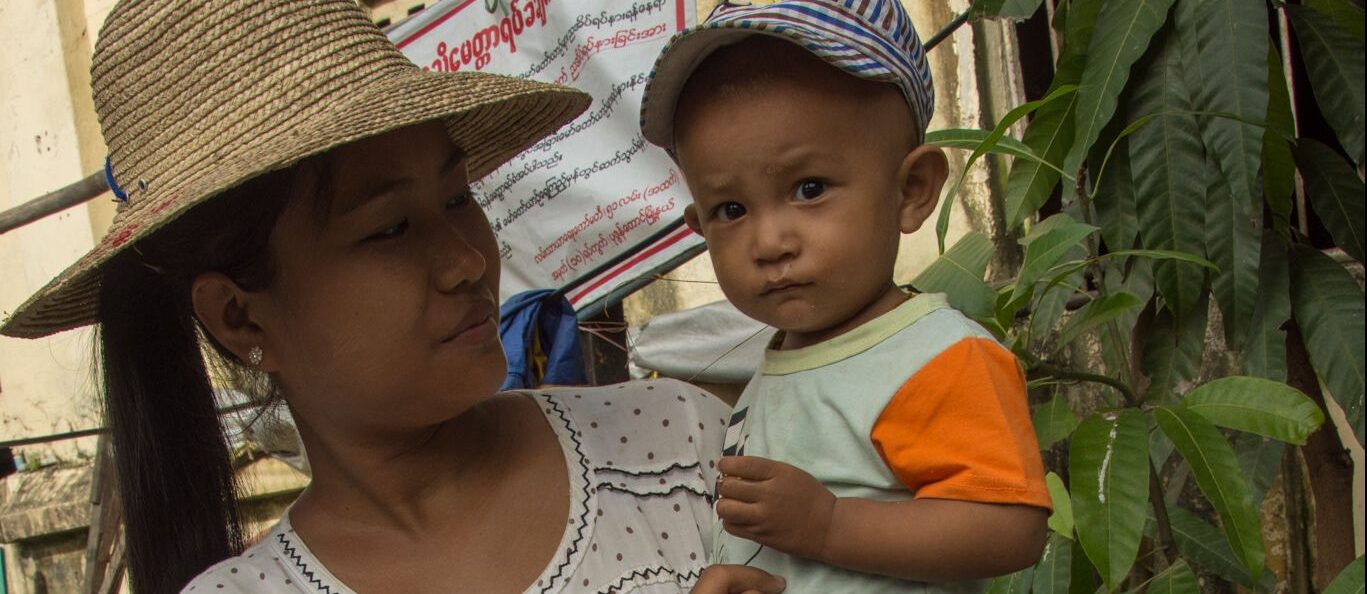We honor the life of George Verwer, our founder. Read More

The loss of a child is an unimaginable pain for anyone. For one family in Myanmar, the death of their firstborn child became an unlikely bridge to connect with their neighbors.
Freshly graduated from seminary in the capital of Myanmar, Ferb* and his wife Hayma* moved to the rural south-west area where he was from with a heart to share Christ’s love with the majority Buddhist people living there. They initially lived with Ferb’s brother’s family and travelled by foot into more remote villages for ministry. Ferb found a community needing his teaching skills and began visiting it regularly.
The village, like many other remote ones, had no schools, and so elementary-aged children travelled long distances on foot or by motorbike (if their family owned one) to nearby schools. But since they had never attended any kindergarten classes the students would often fall behind in their studies, unable to keep up with their peers. So Ferb gathered the youngest village children together and provided teaching for free to give the children a solid learning foundation.
In 2018, Ferb purchased a motorbike which allowed him to move with his then-pregnant wife into the community where he had been working. The couple used their simple rented house to continue tutoring the children. To make ends meet, he worked alongside their neighbors in the rice fields when it was time for planting or harvesting – a common practice in villages where the manual labor requires everyone to pitch in during busy seasons.
The couple welcomed their firstborn daughter, and for a few months, everything seemed to go well. Then suddenly, their daughter fell ill. While they were still discussing whether to travel back to the capital to seek medical care, she died. Devastated, the young couple sought counsel from OM leaders about what to do. Culturally and religiously, there are vast differences between how a Christian handles death versus how an animist Buddhist handles death. The community expected monks to be involved in the funeral of the child, and some even viewed the death as bad luck. Ferb and Hayma weren’t sure how to navigate the situation without breaking trust with those they were there to serve and love. It was Hayma who confidently said, “It’s important that we use this as an opportunity to connect with the community.”
For this couple to share their grief with the community, and to invite monks into their home, allowed the community to support them in the way that they knew how. Ferb and his wife communicated clearly that they were a family that worships in a different way than the animistic Buddhists, but that they wanted to respect the community by allowing them to show their love to the family. When the couple did not move away after the funeral the community responded by offering them a plot of land to build a house so they can continue tutoring the children.
While there certainly isn’t an end date for the pain experienced from losing a child, the hardship allowed for deeper trust to be built. Ferb and Hayma are all too aware of the sacrifice it may yet cost them to stay in the rural village, and yet their love for those who have never heard of Jesus is stronger than their fear. “Many more things could come,” Ferb said, “but we are ready.”
*name changed